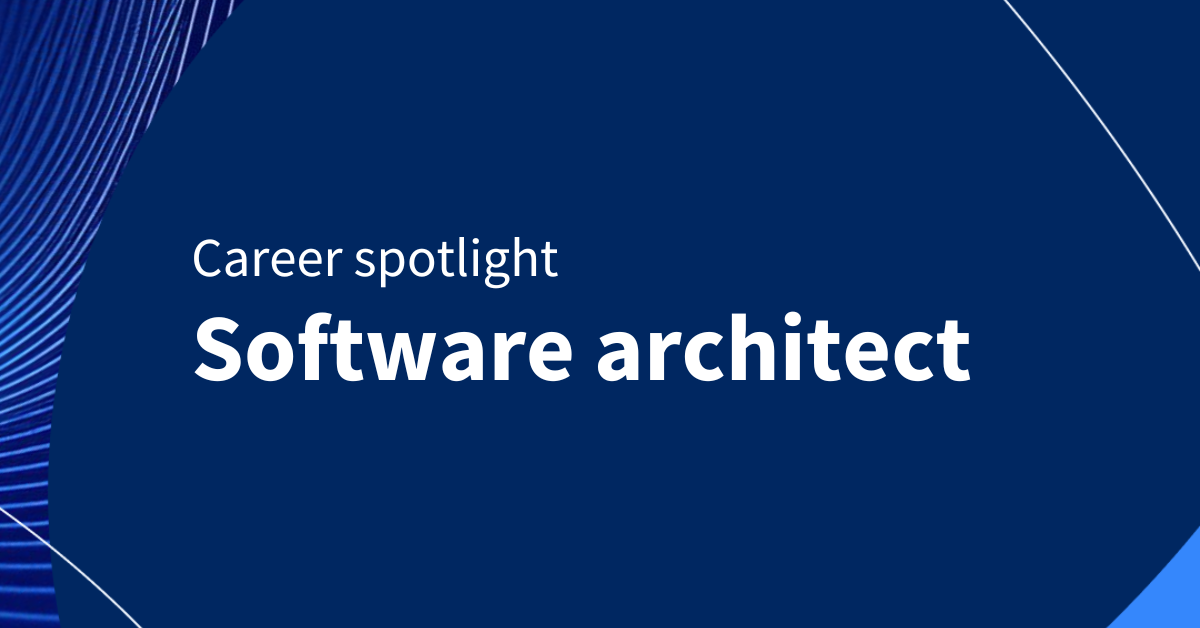In today’s rapidly evolving job market, the technology sector stands out as a field brimming with opportunities and lucrative career paths. According to the United States Bureau of Labor Statistics, professionals in computer and information technology earn a median salary of $104,420 annually. Moreover, the demand for skilled individuals in this sector is projected to grow significantly faster than the average for all occupations over the next decade. This trend underscores the vast range of specializations available, allowing individuals to tailor their careers to their unique interests and skills.
### Understanding the Role of a Software Architect
One of the fascinating career paths within the tech industry is that of a software architect. These professionals are akin to building architects, but instead of designing physical structures, they craft the foundational blueprints for software systems. A software architect’s role involves making strategic decisions about the architecture of a software project. They determine the best tools and platforms to use and establish the technical standards and processes that guide the software development lifecycle.
Unlike their counterparts in building architecture, software architects must also consider how their code functions securely, efficiently, and sustainably. This foresight is crucial as software evolves through various iterations. An ideal starting point for aspiring software architects could be roles such as IT specialists, programmers, software engineers, or even quality assurance testers. The journey to becoming a software architect involves exploring different pathways within IT and identifying advanced roles that align with one’s interests and strengths.
### Insights from an Industry Expert
Bradley Steinfeld, an IBM software architect with expertise in cutting-edge technologies like blockchain, Web 2.0, and cloud computing, offers valuable insights for those looking to enter or progress in this field. Steinfeld emphasizes the importance of creativity, problem-solving, and continuous learning in a rapidly changing industry. He shares that what he finds most rewarding is the opportunity to bring ideas to life and support other developers who build upon his foundational work.
### Essential Skills for Software Architects
Software architects need a robust combination of technical skills and workplace competencies. While the specific technical expertise required can vary depending on the industry or project, key competencies include leadership skills and proficiency in managing the software development lifecycle through methodologies such as DevOps and Agile. Familiarity with Unified Modeling Language (UML) and programming languages like Python, Ruby, or C is often essential.
### Tips for Aspiring Software Architects
For those new to the field, Steinfeld offers two crucial pieces of advice. First, participating in industry conferences and meetups can be an excellent way to network and learn from others’ experiences. Second, aspiring software architects should focus on taking ideas from conception to deployment, gaining hands-on experience with every stage of the process.
Steinfeld is a strong advocate for online learning, especially platforms that offer practical, hands-on courses. He highlights the accessibility of online resources that enable individuals to learn at their own pace and keep up with the fast-paced tech industry.
For seasoned developers contemplating a move into software architecture, Steinfeld’s advice may come as a surprise: don’t forget to enjoy the process. Whether it’s writing clean code, optimizing performance, or developing innovative solutions, finding joy in one’s work is vital for sustaining motivation and passion over the long term.
### Building a Career with IBM
For those ready to embark on or advance their careers in software development or architecture, IBM offers a range of professional certificate programs designed to equip individuals with the skills necessary for success.
If you’re just starting out, the IBM DevOps and Software Engineering Professional Certificate can help you build the foundational skills needed for an entry-level role in software engineering. This program covers essential concepts and practices that are critical for launching a successful career in the tech industry.
To enhance and solidify your software engineering experience, consider the IBM IT Project Manager Professional Certificate Program. This program provides training in project management methodologies while expanding your knowledge of software architecture, preparing you for more advanced roles.
For those looking to further advance their skills, the IBM AI Engineering Professional Certificate offers training in machine learning and deep learning techniques. This program is designed to help professionals provide business insights from big data, making it an excellent choice for those interested in the intersection of artificial intelligence and business strategy.
### Conclusion
The technology sector continues to offer some of the most rewarding and dynamic career opportunities available today. Whether you’re just beginning your journey or seeking to advance in your current role, the path to becoming a software architect is paved with opportunities for learning and growth. By leveraging expert insights, pursuing continuous education, and embracing the joy of creation, you can build a fulfilling and successful career in this exciting field. For more detailed insights and advice from industry experts like Bradley Steinfeld, be sure to explore resources and professional development programs that can guide you on your career journey.
For more Information, Refer to this article.

































